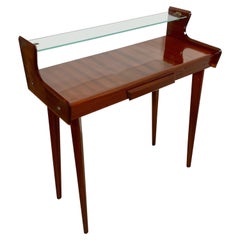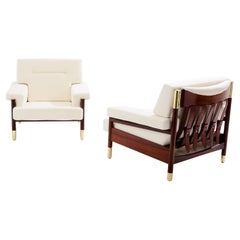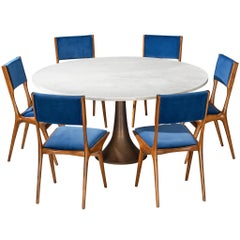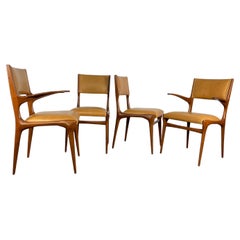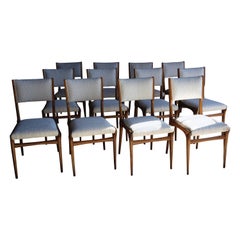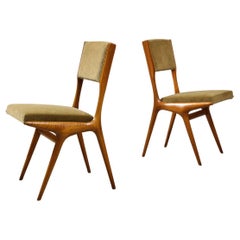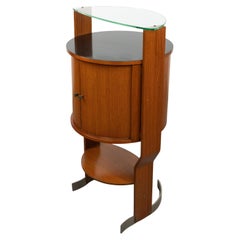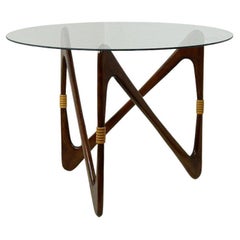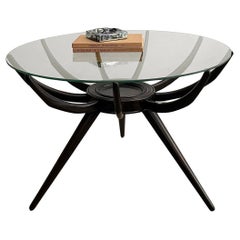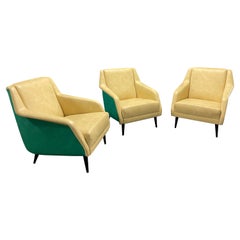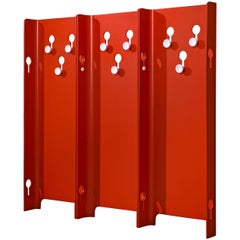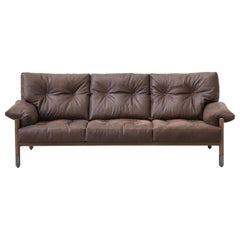Carlo de Carli
A modern Renaissance man, Italian designer Carlo de Carli wove his personal philosophy into his furniture creations. He believed that furniture should suit human movement and the surrounding environment, and each piece was made not only with an eye to form but also for everyday practicality. In today’s interiors, vintage de Carli furniture captures the extraordinary essence of Italian mid-century modernism.
Carlo de Carli was born in Milan in 1910. He studied at the Polytechnic University of Milan and developed an interest in design, architecture, writing and philosophy. After graduating in 1934, he worked under revered Italian architect and designer Gio Ponti. Shortly afterward, de Carli opened a studio with furniture maker Renato Angeli. In 1940, he began a relationship with the Milan Triennial design and art museum, where he eventually joined the board of directors.
Most of de Carli's furniture and architectural works came to fruition between the 1940s and 1970s. His architectural projects included the Church of Saint Ildefonso and the Via dei Giardini 7 building in Milan. However, de Carli is best known for his chair and table designs.
What sets de Carli’s chairs and other seating apart from those of other designers is that they are made to be lived in. As a result, his comfortable, functional and inviting designs earned the attention of leading Italian furniture companies like Cassina, Singer & Sons, Tecno and GUBI, and he played a significant role in 20th-century Italian furniture design.
In 1954, de Carli was awarded the Compasso d’Oro for his Cassina Model 683 chair. In 1957, he also won a Grand Prix at the Milan Triennial exhibition for a chair he designed for Tecno. Still committed to his academic pursuits, de Carli served as dean of the architecture faculty at the Polytechnic University of Milan from 1963 to 1968. He continued teaching until 1986 and continued writing until his death in 1999. His most important writings were published in a book titled Architettura, Spazio Primario.
Find vintage Carlo de Carli armchairs, dining chairs and coffee tables on 1stDibs.
| Average Sold Price |
| $4,644 |
| Styles |
| Materials |
| Related Creators |
1950s Italian Mid-Century Modern Vintage Carlo de Carli
Brass
1960s Italian Mid-Century Modern Vintage Carlo de Carli
Brass
1950s Italian Mid-Century Modern Vintage Carlo de Carli
Marble, Bronze
1950s Italian Mid-Century Modern Vintage Carlo de Carli
Leather, Walnut
Mid-20th Century Italian Mid-Century Modern Carlo de Carli
Bouclé
1950s Italian Mid-Century Modern Vintage Carlo de Carli
Fabric, Walnut
1960s Italian Mid-Century Modern Vintage Carlo de Carli
Metal
1950s Italian Mid-Century Modern Vintage Carlo de Carli
Glass, Wood
Popular Searches
Carlo De Carli Sale Prices
| Sold Date | Sold Price | Category | Material | Creation Year | ||||||||||||||||||||||||||||||||||||||||||||||||||||||||||||||||||||||||||||||||||||||||||||||||
|
| $4,644 |
Average sold price of items in the past 12 months |
| $342-$16,000 |
| Sold price range of items in the past 12 months |
